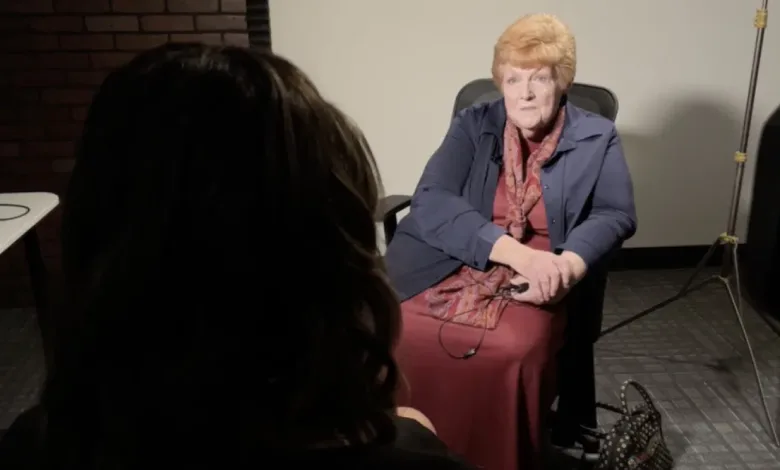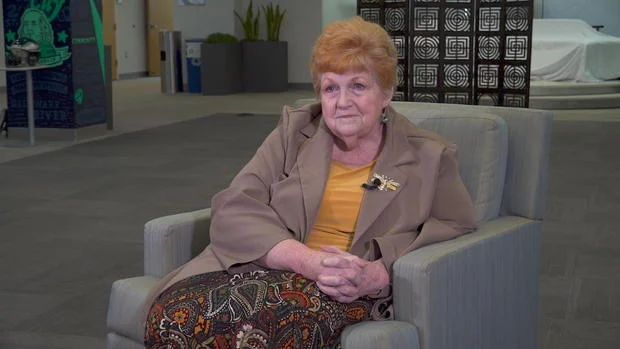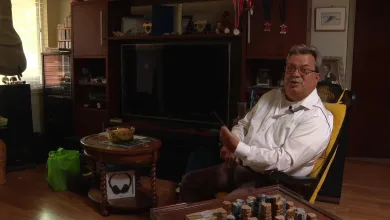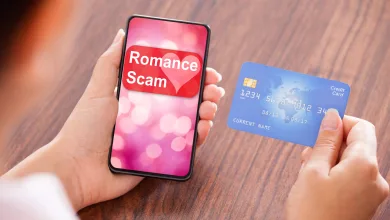
Romance Scam: Kate Kleinert and Lost Savings
Romance scams are one of the most insidious types of fraud, especially in the digital age. Victims often find themselves emotionally trapped, believing in a love that turns out to be a lie. Kate Kleinert’s story is an example of how manipulation can lead to disastrous consequences.
Kate Kleinert, a widow, lost her husband 12 years ago. In 2020, she received a friend request on Facebook from a man named “Tony”. He claimed to be a surgeon working in Iraq and appeared to be a caring and sincere person. He told her that he was raising two children. Their communication quickly developed into a deep emotional bond.

Tony was attentive, regularly messaging Kate, sending romantic notes, showing interest in her life, and offering emotional support. As a widow struggling with loneliness after her husband’s passing, she felt she had once again found love and care. However, behind this idyllic facade lay a cruel scam.
After several months of communication, Tony began asking Kate for money. He needed funds for his children, to buy food, or to improve his Wi-Fi signal so he could call her. He claimed that transferring money in Iraq was difficult, even dangerous. However, he always promised that he would pay her back.
How to recognize a scammer by profile photo?
Uncovering the Scam
Eventually, Tony needed money to fly to Philadelphia and see her in person. By that time, Kleinert had lost nearly $40,000.
In the end, Tony never showed up on the day he was supposed to land at Philadelphia International Airport.
Realizing she had lost all her money was a devastating blow. But the troubles didn’t end there – shortly after uncovering the scam, a fire broke out in her home. The cause was a short circuit in the air conditioner. Kate lost not only her belongings but also six of her dogs. It was a true nightmare.

Kleinert now knows that Tony’s photos were stolen from the Instagram account of a real surgeon in South America.
How romance scammers work
Romance scammers use well-established psychological tactics to manipulate their victims. They study social media profiles, find vulnerabilities, and create the perfect image of a partner. Typically, these scammers:
- Quickly establish a close emotional connection with the victim.
- Create tragic stories (such as the loss of a loved one, serving overseas, or a serious illness).
- Use tricks to create a sense of urgency (such as needing money for urgent expenses).
- Gradually increase the amount of money they ask for.
- Avoid personal meetings and use fake photos.
Often, victims don’t even realize they are being deceived, as scammers are very convincing.
One of the hardest parts of these scams is not only the financial loss but also the psychological trauma. Victims feel betrayed, humiliated, and emotionally shattered. Many experience a strong sense of guilt for their naivety.
In Kate Kleinert’s case, the situation was made worse because she had already lost her husband and was seeking support. Scammers often target such individuals, as they are more vulnerable and in need of emotional connection.
How to avoid romance scams
To avoid falling victim to such scams, it’s important to follow a few simple rules:
- Check profiles. If someone seems too perfect, be cautious. Use reverse image search to verify photos.
- Be cautious with online dating. If someone confesses love too quickly or promises extravagant things, it’s a red flag.
- Don’t send money to strangers. Never transfer money to people you haven’t met in real life, no matter how believable their stories seem.
- Ask questions. Scammers often get confused in their stories. Clarify details, and if the answers seem strange, it’s time to be wary.
- Share suspicions with loved ones. Family and friends may notice warning signs that you overlook due to emotional involvement.
- Use two-step verification. Ask the person to send a photo with today’s date or make a video call – scammers typically avoid these requests.
What to do if you become a victim
If you realize you’ve been scammed, it’s important to act quickly:
- Stop communication. Immediately block the scammer and don’t fall for any attempts to contact you again.
- Report to the police. The sooner you file a report, the better the chances for an investigation.
- Contact your bank. In some cases, you may be able to dispute transfers and recover the money.
- Post information on specialized websites. This helps warn others.
- Seek psychological support. Many victims experience depression and stress after such situations.
Kate Kleinert’s story is a tragic yet instructive case. Romance scams cause not only financial damage but also deep emotional harm. It’s important to stay alert and not allow scammers to exploit our emotions. Sharing information about these schemes can help protect yourself and others from such frauds.









